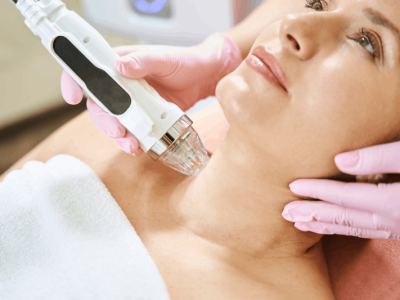Several changes are bound to happen during various developmental stages in a woman’s life. One of the most overwhelming stages is menopause, which happens at 45 and above. During menopause, you may encounter hormonal and psychological changes affecting your quality of life. Fortunately, these symptoms are manageable and treatable. Talk to a menopause Winter Park specialist to learn more about what to expect during menopause to make the transition easier for you. Here are five essential facts about menopause to help you understand the process better.
- Menopause Is a Natural Process
Menopause is a natural process that occurs when you stop ovulating or having your menstrual periods. It signifies that your reproductive years have ended. Menopause can occur even at 40, but the average age for most women is 51. Sometimes, it can occur earlier than age 40, also known as premature menopause. Some factors can lead to premature menopause, such as hysterectomy or chemotherapy.
- Menopause Happens in Stages
Menopause is not a sudden condition that happens when you least expect it. It occurs in three natural stages, including perimenopause, menopause, and post-menopause. You might experience different symptoms during these stages ranging from mild to moderate to severe.
During perimenopause, your body begins preparing for menopause by making less estrogen. When your ovaries stop releasing eggs and your periods disappear for a year or more, you begin to experience menopause symptoms which might be more extreme. The post-menopause period happens years after the menopause symptoms have subsided.
- Several Symptoms Can Develop During Menopause
Menopause causes hormonal changes that can trigger symptoms. However, these symptoms might differ for every woman. In some cases, it can lead to depression, discomfort, and other mental disorders. Some of the most common symptoms among 75% of menopausal women include hot flashes, night sweats, vaginal dryness, irregular periods, mood swings, and low sex drive. You might also experience muscle and joint pain, a racing heart, headaches, and fatigue.
- Menopause Can Cause Some Health Problems
Due to low estrogen levels that occur during menopause, you might develop several health problems, such as heart disease, urinary incontinence, and Alzheimer’s disease. Also, you can develop wrinkles due to less skin elasticity, particularly on your face and neck. The hormonal changes during menopause might lead to osteoporosis, a condition that leads to low bone density.
- There Are Several Treatment Options for Menopause
Menopause is a natural process guaranteed to happen at some point in your life. To lower the severity of your symptoms, you can get several treatments to help balance your hormones and improve your overall mood. However, some treatments, such as hormonal therapy, might not be suitable if you have an underlying medical condition such as breast cancer, gallbladder disease, and dementia.
Also, incorporating various natural lifestyle changes can effectively manage your menopause symptoms. Maintaining a healthy weight, avoiding alcohol, wearing cotton-layered clothing, and exercising are some of the most effective lifestyle changes that can help alleviate menopause symptoms.
Menopause can affect your health and well-being. However, it is a natural process that can be managed through several medical treatments and effective lifestyle changes. Contact Contemporary Women’s Care to learn more about what happens during menopause and the healthy choices you can make to make the transition smoother. Visit the clinic’s online portal to schedule an appointment or inquire through the office number.








Comments